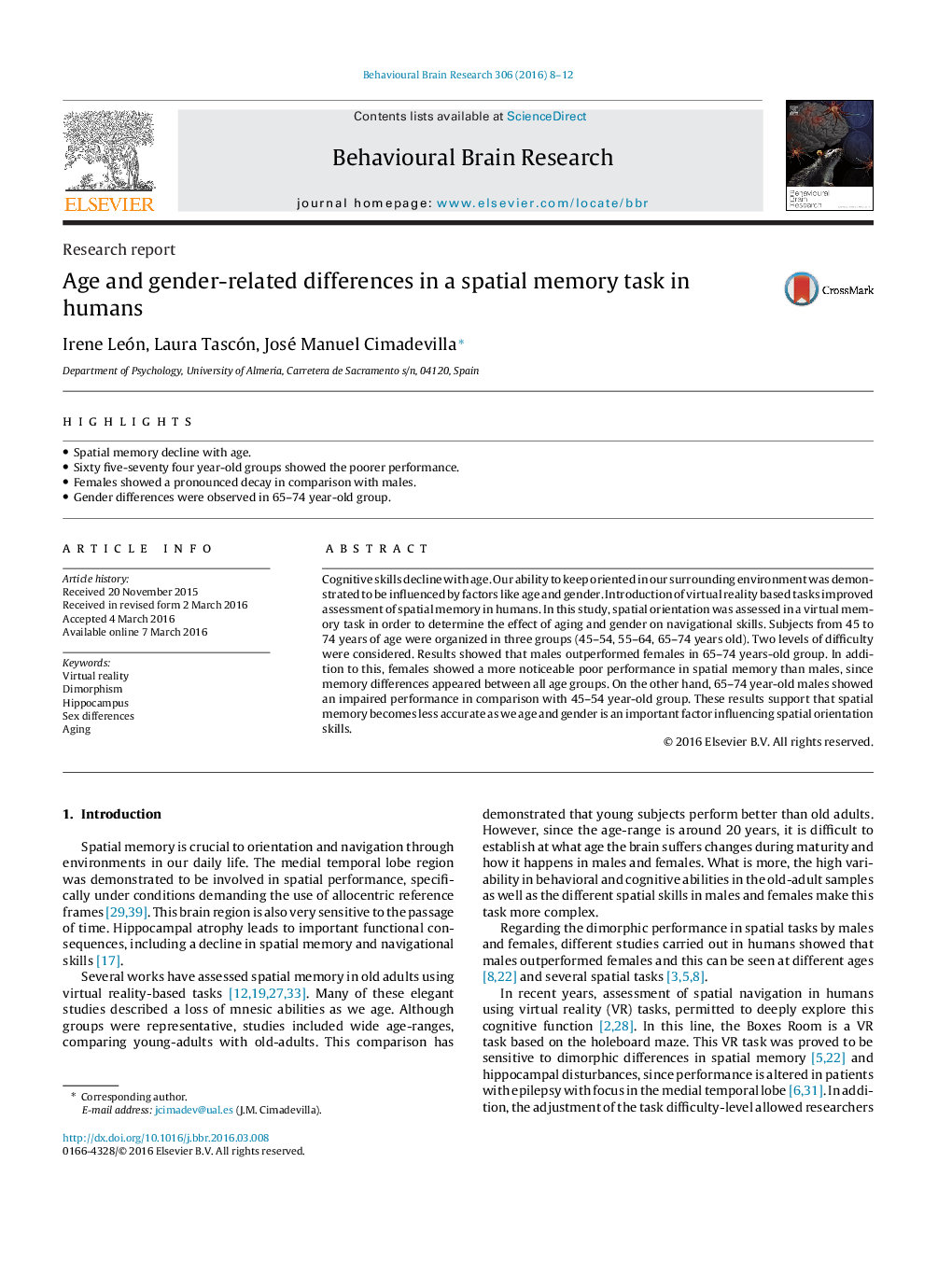| Article ID | Journal | Published Year | Pages | File Type |
|---|---|---|---|---|
| 6256071 | Behavioural Brain Research | 2016 | 5 Pages |
â¢Spatial memory decline with age.â¢Sixty five-seventy four year-old groups showed the poorer performance.â¢Females showed a pronounced decay in comparison with males.â¢Gender differences were observed in 65-74 year-old group.
Cognitive skills decline with age. Our ability to keep oriented in our surrounding environment was demonstrated to be influenced by factors like age and gender. Introduction of virtual reality based tasks improved assessment of spatial memory in humans. In this study, spatial orientation was assessed in a virtual memory task in order to determine the effect of aging and gender on navigational skills. Subjects from 45 to 74 years of age were organized in three groups (45-54, 55-64, 65-74 years old). Two levels of difficulty were considered. Results showed that males outperformed females in 65-74 years-old group. In addition to this, females showed a more noticeable poor performance in spatial memory than males, since memory differences appeared between all age groups. On the other hand, 65-74 year-old males showed an impaired performance in comparison with 45-54 year-old group. These results support that spatial memory becomes less accurate as we age and gender is an important factor influencing spatial orientation skills.
